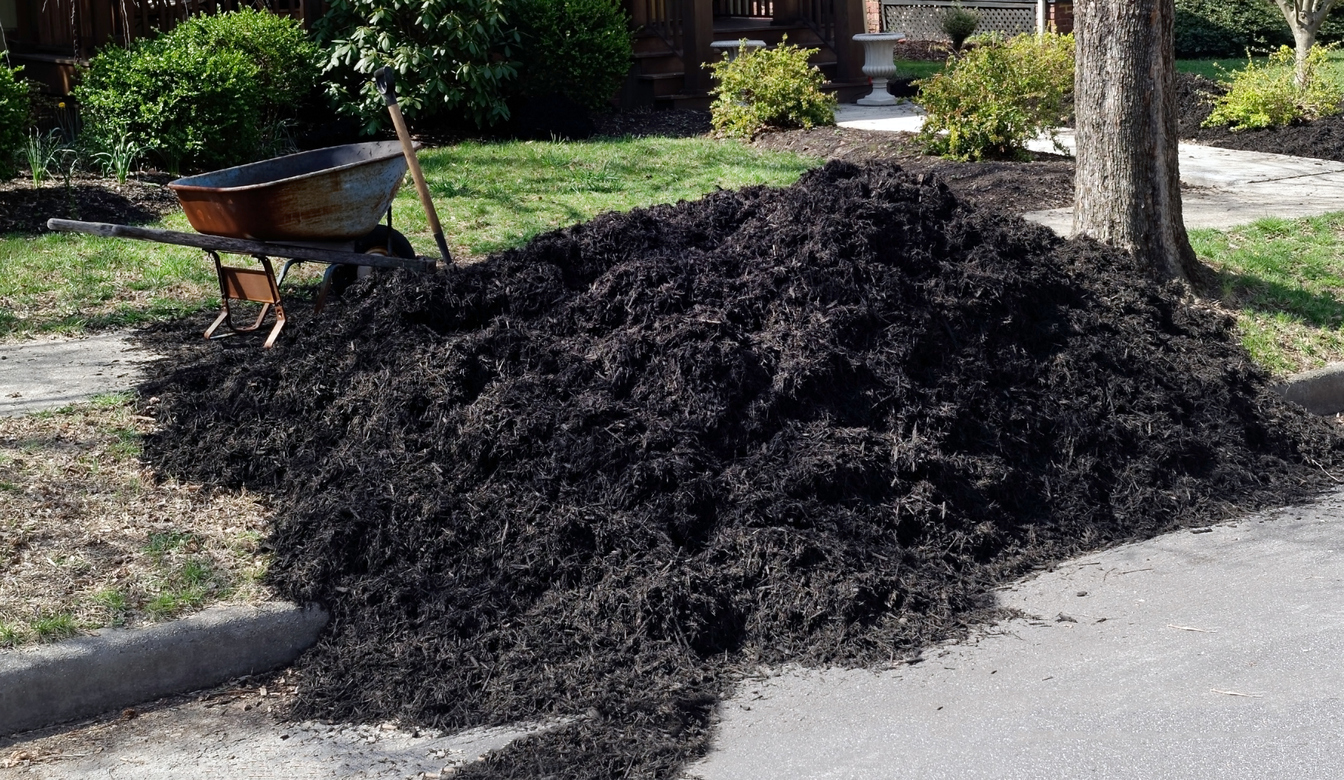If you’re an amateur gardener, you’re surely familiar with just how relaxing and even therapeutic the hobby can be. There’s really nothing that compares to working with the soil, getting your hands dirty, and eventually being able to experience and enjoy the fruits of your labor.
Then again, gardening is not without its occasional frustrations. Unwanted weeds can strangle your plants and crops. Water can evaporate or freeze during inclement weather, leading to less than vibrant results. Nature, in other words, can sometimes choose to give your garden a rather hard time.
So, how to fight back? Simple as it may sound, mulching can go a surprisingly long way towards keeping your garden in top shape throughout the planting season. Aside from improving the overall quality of the soil around your plants, for instance, mulching will slow the growth of weeds, cut back significantly on moisture evaporation, and improve your soil’s texture.
Mulching gives your garden a neat and tidy appearance. But if you don’t know what to add to your mulch beds—or worse, when and where to use your NJ mulch supply and how to apply it—you may end up creating more problems for your garden than you started with.
But not to worry: Follow our suggestions below, and your garden will be smiling back at you in no time.
Creating Organic and Inorganic Mulch Beds
Although you can purchase mulching material at almost any home supply or retail gardening store, nature itself has probably deposited the items necessary to create mulch right in your own backyard. Look for twigs and fallen limbs, fallen fruit, bark chips, leaves, needles, grass clippings, and nearly any other sort of organic material.
Of course, we understand that even the greenest of gardeners won’t always have the time to source their own mulch. That’s why we are always here to help you replenish your NJ mulch supply at locations in Mendham, Annandale, and Chester.
How Should You Apply Your Mulch Beds?
Whether you’ll be applying mulch to flower beds or around the trees in your yard or the edges of a garden walkway, remember that mulch needs to be 2 inches deep at a minimum, but no deeper than 3 or 4 inches. A bit of simple math should help you decide how much mulch you’ll need to gather.
Remember to pull or cut weeds before you apply your mulch, assuming that weed control is one of the reasons you’re mulching. If you have a serious weed problem you’d like to control, putting down a layer of plastic or landscaping fabric beneath the mulch can help. Bear in mind that you’ll have a much tougher time watering, though, if your soil is covered by a layer of inorganic material like plastic.
What are the Benefits of Mulching?
It’s really quite surprising how much work mulch will actually do in your garden, or around your trees. Mulch doesn’t just inhibit weed germination and growth. It will also keep your plants cooler in hot-weather climates and warmer during periods of cold weather. It keeps moisture from evaporating straight out of your soil, which is another way mulch protects your plants and keeps them healthier overall.
Depending on the sort of mulch you use, it can even add various nutritional elements to your plants and flowers, helping them grow significantly quicker and healthier. In short, mulch keeps your plants from becoming “stressed” and dying quicker than they otherwise would.
When Should You Mulch?
There’s a good bit of debate surrounding this subject—you’ll find any number of differing points of view if you start searching for opinions online—but the truth is that mulch can be applied just about any time of the year. That advice comes with a couple caveats: If you’re mulching in the winter to keep your plants from heaving, in which plants literally pop out of the ground, wait until the weather is cold enough outside that the ground has actually frozen.
Most gardeners, however, if pressed, will tell you that mid-to-late spring is probably the best time to do your mulching, which is why we’re sharing this information with you now.
When they need to replenish their mulch supply, NJ gardeners turn to Mendham Garden Center.
If you’re ready to protect your garden, and if you’d like to avoid the hassle of collecting your own organic mulching materials, stop by one of our three New Jersey retail centers and let us show you the various mulch options we have in stock.

